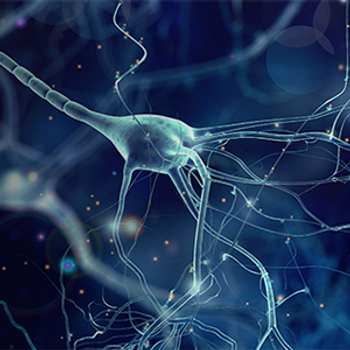
The director of the Medstar Georgetown University Headache Center spoke about the data that’s been presented thus far, as well as how ubrogepant separates itself from what’s currently available for patients.

The director of the Medstar Georgetown University Headache Center spoke about the data that’s been presented thus far, as well as how ubrogepant separates itself from what’s currently available for patients.

The staff neurologist at the Mellen Center shared the findings from a poster the group presented from the cohort of patients in which they evaluated quantitative MRI.

Understanding risk perception and risk tolerance can lead to greater satisfaction with treatment choices and adherence for patients with MS.

Neurology News Network for the week of March 16, 2019.

The staff neurologist at Cleveland Clinic's Mellen Center spoke about the real-world observational study of the primary-progressive MS treatment.

The neurologist with Premier Neurology spoke about the challenges and state of symptomatic care in multiple sclerosis.

EEG and brain MRI findings are normal-what do you suspect?

The research staff member at the IBM Research-Australia lab discussed how he and colleagues utilized machine learning to identify a set of proteins in blood that can predict the concentration of amyloid-beta in spinal fluid.

After almost a year on the market, post-marketing data has been suggestive of a risk of anaphylaxis and angioedema in patients who are hypersensitive to erenumab or the excipients.

Ned Sharpless, MD, the director of the National Cancer Institute, has been named to the position of acting FDA Commissioner. The announcement was made just a week after the current commissioner, Scott Gottlieb, MD, announced his plans to resign in early April.

The staff neurologist at Cleveland Clinic's Mellen Center spoke about re-examining patient-reported outcomes to better understand the quality of life of patients and how it can affect clinical care.

The 2-year safety and efficacy extension of the CHANGE-MS trial ultimately showed encouraging dose-dependent effects with the 18-mg/kg dose on confirmed 12-week EDSS and 25-foot timed walk scores.

The Andrew & Erna Viterbi Professor of Electrical Engineering and Computer Science at MIT spoke about a new way of continuous monitoring for patients with MS and neurodegenerative disorders, discovering changes in quality of life and new biomarkers.

The director of the probabilistic vision group and medical imaging lab at McGill University spoke about how these learning methods can be used to predict future lesion activity and disability progression in MS.

An immune profile in blood drawn 2 days after an ischemic stroke has been shown to predict the likelihood of the loss of mental acuity, 1 year later.

A Prescription Drug User Fee Act action date has been set for Dec. 27, 2019.

The review period for the oral CGRP receptor antagonist has been set at 10 months, with a Prescription Drug User Fee Act action date in the fourth quarter of 2019.

The chief of the Multiple Sclerosis Division at the Perelman School of Medicine discussed the importance of institutions recognizing the value a comprehensive MS clinic can provide not only to the patients but the institution itself.

The director of the Corinne Goldsmith Dickinson Center for MS at Mount Sinai School of Medicine spoke about the major issues in MS right now: being able to individually prognosticate, moving toward developing better therapies for a progressive disease, and repairing the damage to the nervous system.

What are the risk factors for serious intracranial injury? When can patients return to normal activity? Answers here.

The staff neurologist at the Mellen Center for MS at Cleveland Clinic spoke about the potential for the central vein sign to help address issues of misdiagnosis in multiple sclerosis

The vice president of US Medical Affairs in Neurology and Immunology at EMD Serono spoke to the next steps for the oral agent and its potential to get approved by the FDA in 2019.

The director of the multiple sclerosis research unit at Ottawa Hospital spoke about the importance of long-term efficacy studies.

The director of the Mayo Clinic Alzheimer Disease Research Center and Mayo Clinic Study of Aging spoke about the current therapeutic landscape of Alzheimer disease, among other topics.

Neurology News Network for the week of March 9, 2019.

The staff neurologist at Cleveland Clinic's Mellen Center spoke about the importance of a comprehensive approach to managing patients with multiple sclerosis.

The chief of the Multiple Sclerosis Division at the University of Pennsylvania’s Perelman School of Medicine spoke about the need for more team-based care for patients with MS.

This young woman is otherwise healthy and doesn’t drink or abuse drugs. What’s in your differential diagnosis?

SEEG displayed better procedural morbidities and may have better outcomes than subdural grid electrodes, which study authors suggest should impact decision-making and lower the surgical candidacy barrier.

The Allergan product was granted Priority Review for upper limb spasticity and is expected to be decided on in the second quarter of 2019, while the lower limb indication will have its evaluation by the fourth quarter.